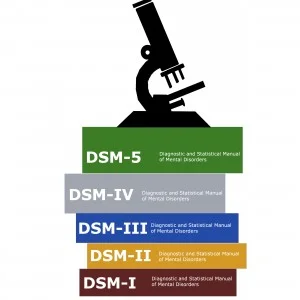The Pros and Cons of Getting a Psychological Diagnosis
I’ve had this list written for a while and recently read an article in the New Yorker that inspired me to finally send it out (I’ll post a link to the article on https://www.Facebook.com/HoustonFamilyPsychology).
If you’ve been struggling emotionally, you may wonder if you have a mental health problem. Some people seek psychological treatment because they want a diagnosis to help them understand their experiences, while a desire to avoid diagnostic labels keeps others from seeking professional help. Whether you are looking for a diagnosis or trying to avoid one, it’s important to understand the potential advantages, as well as drawbacks, to getting a psychological diagnosis.
How can getting a diagnosis help?
Positives
A diagnosis can help you get insurance coverage: If you have mental health coverage, the only way to get reimbursement it is by having a diagnosis. If you’ve ever used health-insurance to pay for mental health services, you’ve been given a diagnosis. I find that some providers discuss this more openly with patients than others.
A diagnosis can help you understand what’s going on: The symptoms of mental health problems can often feel confusing and distressing. Having a name for these symptoms can help make sense of your experiences. For some diagnoses, such as OCD, recognizing and labeling the problem can be an important part of the treatment.
Knowing what your diagnosis is can help you communicate more efficiently about your experience and access information for self-help such as books, websites, and support groups.
A diagnosis can help you feel less alone: For some people, knowing that other people have faced similar difficulties, can feel like a huge relief and ease the sense of isolation that can come from thinking there’s something uniquely wrong with you. Being able to put a label on your symptoms puts you in a category of having experiences that other people have also had.
A diagnosis may protect you from discrimination and help you gain access to resources or accommodations in a school or work setting under the Individuals with Disabilities Education Act (IDEA) or Americans with Disabilities Act (ADA).
What are the possible drawbacks of a diagnosis?
Negatives
Having the label of a diagnosis can make it feel like there’s something bad or wrong about you, which makes some people feel worse—like they are powerless to get better and are at the mercy of the problem. This can interfere with recovery.
Although it may be decreasing somewhat, there can still be a stigma associated with having a diagnosis of mental illness, and the risk of people discounting your experiences or seeing you as a label rather than a unique person. This stigma can persist after people have recovered and no longer meet criteria for the diagnosis.
Within any given diagnosis, there are varying degrees of severity that are not addressed by most diagnostic labels. They tend to be seen as “all or nothing” problems and can sometimes over-pathologize human emotions and behaviors, which can also lead to over-medication.
A diagnosis provides limited information: For some problems, two people with the same diagnosis might have almost completely different sets of symptoms. On the other hand, someone with one core problem that shows up in many ways in their life could wind up with multiple diagnoses based on their symptom presentation.
A diagnosis does not necessarily give us a treatment plan. Treatment still needs to be tailored to each individual’s symptoms and desired goals, and many of the most advanced treatments can be effective across multiple diagnoses. For example, treatment approaches for most anxiety and depressive disorders are often similar.
deciding what’s right for you
As you can see, there are multiple reasons for and against getting a diagnosis. If you are struggling to pay for mental healthcare, and getting a diagnosis would allow for insurance coverage, it may be helpful to you, but it’s important to recognize that a diagnosis isn’t always necessary, or relevant, for getting help. When relevant, we may discuss diagnosis as a way of helping you better understand your symptoms or access additional help, but getting diagnosis does not solve the problem. Whether you get a diagnosis or not, it is always my recommendation to focus on the specific symptoms you are experiencing and your personal goals, not the label. Any mental health professional you meet with should be willing to discuss your thoughts about receiving a diagnosis during your sessions.
For more information on the areas I work with, click here.

